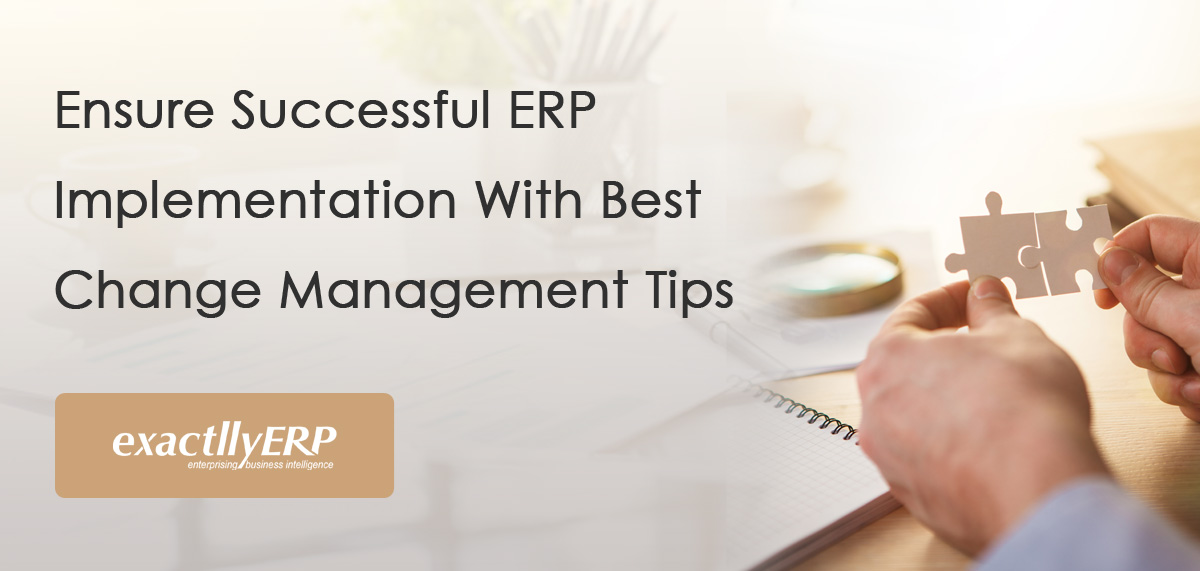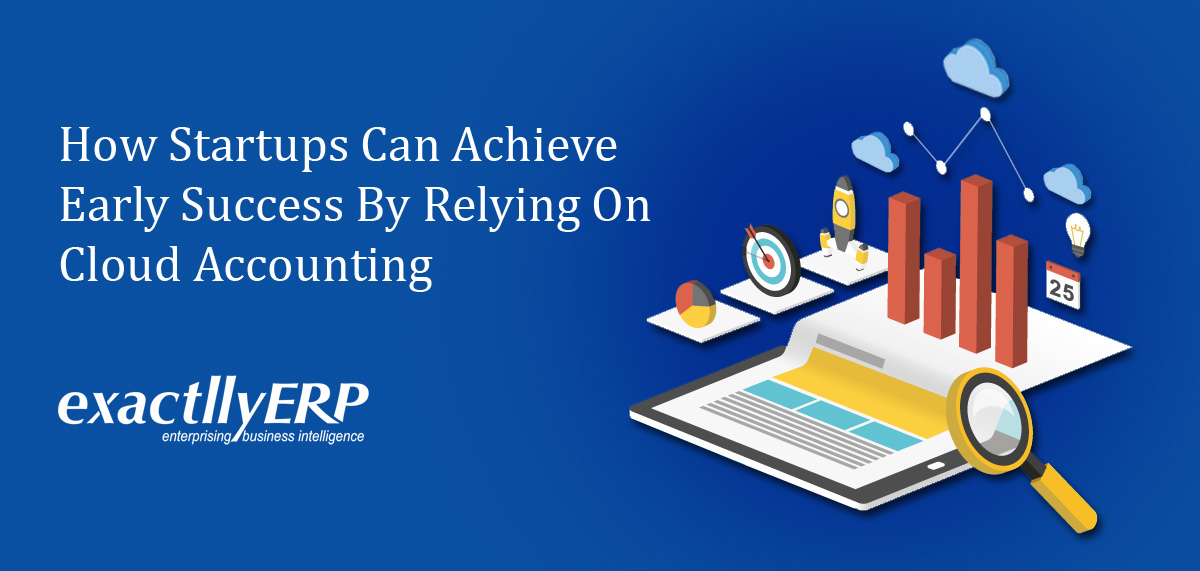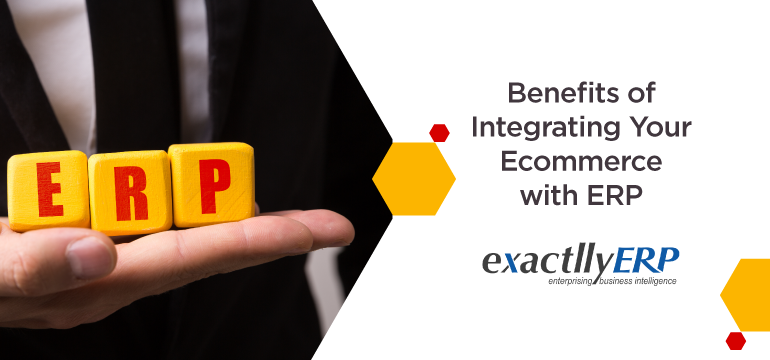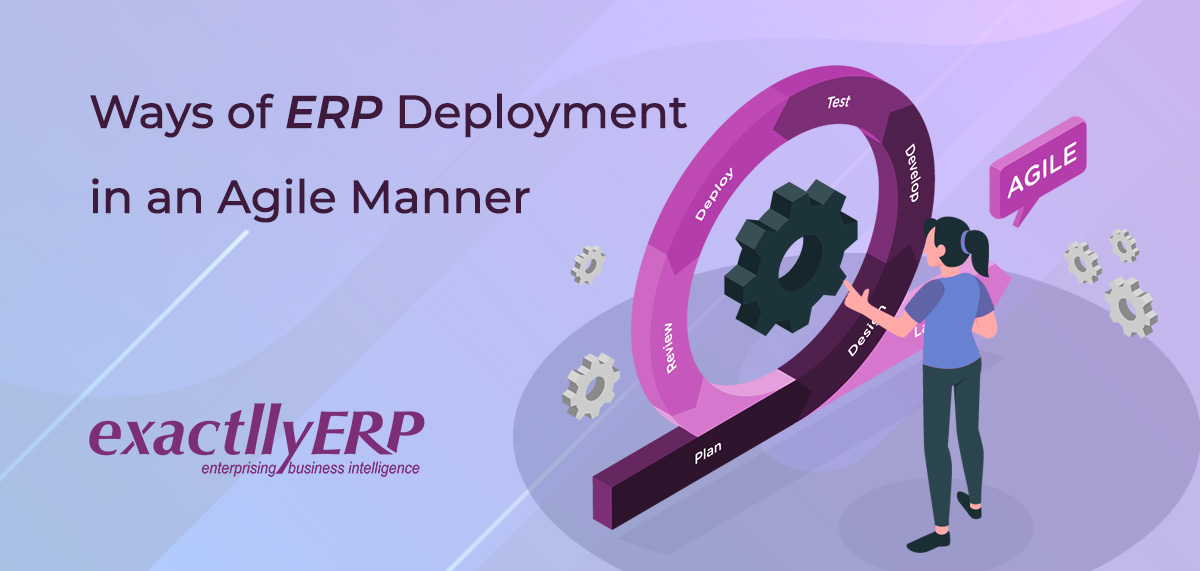Ensure Successful ERP Implementation With Best Change Management Tips

The moment a business slips behind its competition due to dated practices, it can only revert to one solution, i.e. ERP implementation. Not only this will help in breaking old habits but will also help it recognize opportunities that it never knew even existed. But both employees & users will take some time to adapt to the ERP implementation process. Missing out on organizational change management and planning tactics can be catastrophic for any business. As per a study, almost 40% of businesses never emphasize OCM. Failure in OCM strategy will inevitably lead to ERP failure. This mainly happens as no user really likes to adapt to a whole new system.
In this blog post, businesses can get hold of important tips for facilitating organizational change management for making ERP system implementation successful. A business can advance like never before with these tips.
Vouch for successful ERP implementation with OCM top tips:
- Constructing a Training Strategy – The training strategies for users similar to communicating with the employees is not always uniformed and standardized. Grasping the technical understanding & aspects of ERP is only possible when users & employee training takes place. Understanding the EP tools & modules is very important for successfully completing ERP projects. However, it is important to realize that not all users will utilize similar features on an ongoing basis. Some will benefit from hands-on training while others will require guidebooks & webinars to learn at their own pace. Everyone can easily hop on to the board if the business supports manifold training techniques.
Considering a few points is important when it comes to your valuable employees. ERP implementation does involve some amount of work. Training always requires homework. It is vital for managers to allocate office hours for training but users must invest some time in getting accustomed to the new software for keeping the business objectives right on track. Also, training is not simply for the primary implementation. With the software becoming more modified and a transforming workplace, ongoing usage will call for better subsequent training.
- Importance of leadership buy-in – When it comes to ERP software implementation for augmented sales orders, the only changed champions are the engaged & proactive leaders. Change is something that always needs to be brought. Senior leaders of any business function as a catalyst for supporting those change efforts. Missing out on this will only make the aspect of change more challenging. This also includes addressing leaders who are resistant. Many times people in an organization think that the approval of the project led to the alignment of the leaders. But in reality, leaders who actually drive change pervade throughout a company. Even a small dissenter carries the chance of derailing the organization’s capability to adapt.
Only the C-suite people are not responsible in a company to participate actively from the beginning but line-of-business managers as well. To be precise, anybody in a company who is accountable for bringing change or people who will realize the effect of the change must be a member from the beginning of the ERP project.
- Communicating Effectively – Sudden news of change without any proper explanation can perplex even the strongest teams within a business. It is true that no ERP implementation strategy includes complete upheaval of present procedures but it incorporates the attainment of new technology & data. This calls for users’ transforming their routines & adapting to unfamiliar systems. Users must realize the purpose of the new infrastructure or else the workplace will just speak of animosity. This makes communication extremely vital for project success.
Especially ERP in the retail industry is very useful. ERP system helps in simplifying tasks for employees that make it integral to explain to them the purpose behind ERP implementation. During the team meetings, the members should receive proper updates & receive encouragement for asking queries before & after going live. The whole purpose of ERP business collaboration & ERP system implementation is to generate revenue & enhance processes. This will also make the jobs of the employees much more fulfilling. When users receive reminders about the benefits, they will automatically switch to enterprise resource planning software.
- Addressing Concerns & Fears of Employees – It is true that familiarity will always breed disdain. But familiarity is very comforting even in times it fails to function well when change management is concerned. Employees sometimes think that they carry particular expertise in the existing system. The challenges are also familiar even if the present ERP in construction industry software requires workarounds. The new software will always need new processes. Busy workers might face problems when they try to allocate time for getting to know a new system. Changemakers are the ones who need to realize the concerns for addressing the issues correctly.
Changemakers can begin by comprehending the current work processes of the employees. Also what changes the employees need to make after ERP software implementation is also a concern that project leaders must-have. After this, they can gaze upon the advantages the new ERP implementation process will bring for marketing those.
Derailing user adoption can largely be avoided if project planning does not undervalue the cultural & behavioral factors. Change management can be unremitting or project-specific. But for both things, the desire to make the shift needs to be instilled rather than applying particular techniques & tools.
A very important factor for proper change management is emotional intelligence. People will only invite persuasion when they find the approach to be empathetic. The correct balance needs to be struck between competency & ambiguity.
- Recruit Consultants – Overwhelming emotions & feelings is one of the major reasons why companies choose not to implement change management processes. It is true that ERP implementation is a time-consuming job. It can interrupt the ongoing operations with the employees taking on various project roles. In order to manage these responsibilities, organizations put OCM on chopping blocks but lastly sometimes regret their decision.
Here project leaders and managers can make a different choice by collaborating with ERP consultants. The professionals not just cut down the entire project duration but also take the wheels on the ERP implementation process. This way the workforce will never face challenges to continue the ongoing duties & will be keen to learn the new ERP system. Consultants also assist in building a robust OCM plan & guarantee absolute ERP success. They follow the best practices by keeping the ERP implementation within the timeline & budget.
- Considering the Previous change Failures & Successes – The strategies of OCM will always vary with organization cultures & goals. Keeping a check on the business’s weaknesses & strengths as they link to change resiliency is a vital factor in the realm of change management. Few questions to address are:
- What are the other changes the business undergoes?
- How did the employees & leaders handle the changes?
- What are the changes they tackled poorly?
- What can the entire workforce learn from the lessons? How can they apply the lessons to the present ERP implementation?
A business’s history of victorious change in the previous times will have a very huge effect on the intensity of the success of any present change efforts.
- Customizing Best Practices – There are several OCM strategies that an organization can apply. But changemakers need to ensure that they are not taking a generic approach. Change management must never be a set of best practice meetings, project protocols, communication, etc. Instead, leaders need to craft a customized strategy for helping every stakeholder support the business goals for getting most people on board.
- Need for a Change Roadmap – ERP implementation that takes place in real-time for change management never includes clear demarcated stages. But constructing a roadmap is vital. A roadmap assists in realizing the change points, offer guidance, manage & set expectations, etc. Leaders must reflect on the roadmap as mentioned below as the beginning point:
- Present state analysis – Adequate time allotment is necessary for documenting the current work processes
- Check–ins – Carrying out change impact estimations is important at several intervals via the entire project. For instance, after design, primary builds & primary testing
- Stakeholder Analysis – Engagement of all the stakeholders is required
- Opportunity Identification – The change impact estimation acts as the driver for the requirement of policy changes, communication & training
- Upcoming Business Process – Comprehend & document the way accomplishment of the work will take place after the ERP implementation
Conclusion:
In the instance of ERP business collaboration, change management can never be an addendum or elapsed altogether. Change truly can be thrilling but needs some smart work. Successful ERP implementation calls for applying the best practices so that the implementation occurs as per the business goals & procedures. It is highly critical to associate with a renowned software provider like exactllyERP in today’s business landscape. The experts always stick around even after the ERP is live. They put forward integrations, maintenance & upgrades for supporting their clients’ success. Free Demos available as well. Contact Us today.





